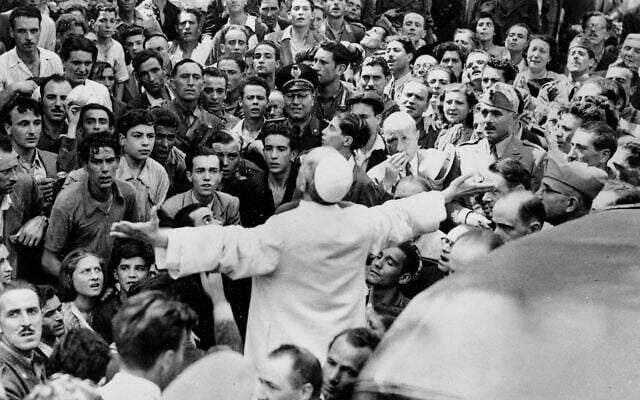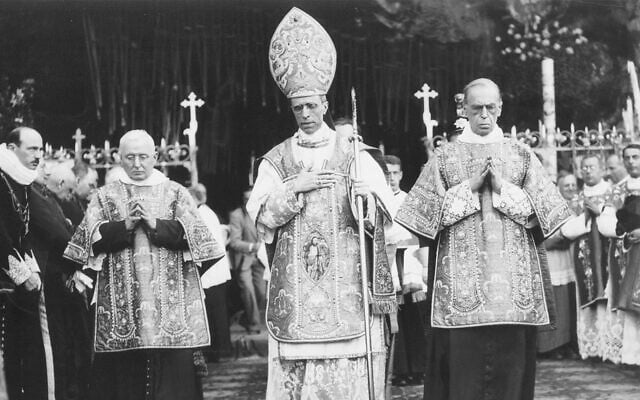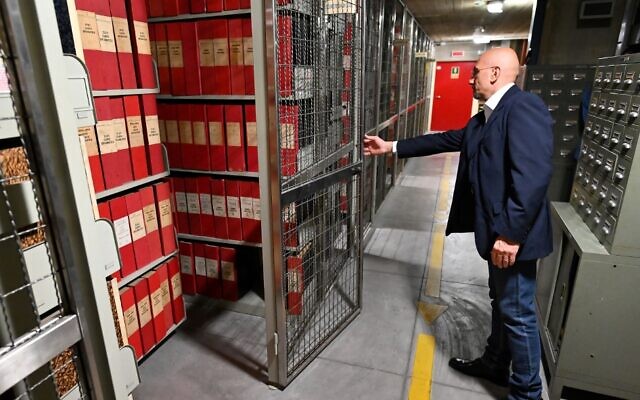Getting your Trinity Audio player ready...
German researchers investigating the recently opened Vatican archives of war-time Pope Pius XII reveal that he was aware of mass killings of Jews in Europe, but that he kept the information from the United States, according to a report in the Washington Post.
Although the archives only opened in the first week of March - and were shuttered a few days after due to the outbreak of the coronavirus pandemic - it was enough time for scholars to find evidence that Pius' poor reputation for his supposed official silence during the Second World War, was well-merited.
The Post reported that a network of sources informed Pius of what was occurring in occupied Poland and Ukraine, but an aide encouraged him to keep the information private because the Jews and Ukrainians - the main sources of information - "could not be trusted because they lied and exaggerated."
Leading the German research team was Hubert Wolf, 60, an award-winning historian of the Catholic Church.
His group of researchers discovered that the Vatican hid these and other documents, presumably to protect Pius XII's reputation. It is likely that these revelations will further embarrass the Catholic Church - which for decades was confronted with hints about Pius XII's wartime conduct, as well as the more recent fallout from the clerical sexual abuse scandal.
As with so many historical figures, things are not black and white with regard to Pius XII. His failure to overtly condemn the slaughter of Jews earned him the title "Hitler's pope," although his defenders will point to the fact that he tried to protect Italy's Jewish population for as long as possible, even going so far as to hide some Jews in the Vatican.
What cannot be denied, however, is that certain cardinals within the Vatican used the Catholic Church's extensive network to help high-ranking wanted Nazi war criminals - such as Adolf Eichmann and Dr. Josef Mengele - to escape to South America via the so-called Ratline.
3 View gallery


Men, women and soldiers gather around Pope Pius XII, his arms outstretched, on Oct. 15, 1943, during his inspection tour of Rome, Italy
(Photo: AP)
It is unclear whether these new revelations will do anything to dismantle the bridges built between the Catholic Church and global Jewry - particularly since the Nostra Aetate, the Second Vatican Council’s Declaration on the Relationship of the Church to Non-Christian Religions promulgation in 1965. The stakes, however, are high.
Pius XII, who led the Catholic Church from 1939 to 1958 is a candidate for canonization, although one of his successors, Benedict XVI, postponed his cause for sainthood upon his election in 2005 because Pius' archives had yet to be opened to researchers. It is likely to take researchers at least a decade to fully investigate all Pius' documents.



